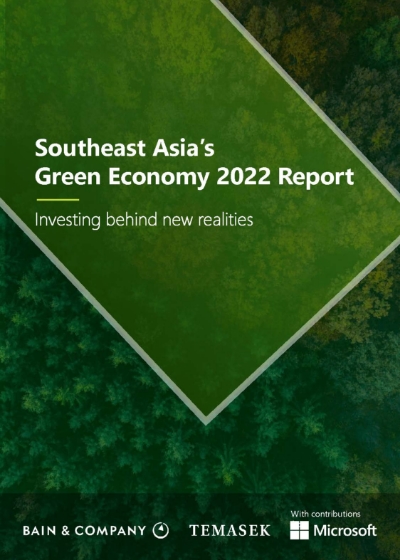For instance, carbon credits will be one way for companies and countries to meet their climate targets, especially for hard-to-abate sectors such as the steel and chemical industries. Each carbon credit represents one tonne of carbon emissions.
With there being increasing demands for high-quality carbon credits, ASEAN, which has swathes of carbon-trapping forests, has an abundance of natural capital and will be well placed to meet this demand.
"The growth of a thriving regional carbon market would contribute to economic growth, as well as job creation in services such as credit project development, carbon accounting, reporting and verification, and carbon trading," said Dr Tan.
With the increasing global momentum on climate action, businesses, too, need to transform their products and services to become more sustainable, to meet their investors' and consumers' demands.
"This presents opportunities in the area of green financing, as more companies look to various financial instruments to support their sustainability efforts," said Dr Tan.
To establish Singapore's competitive edge early in a low-carbon future, the nation is currently working with Australia on a first-of-its-kind Green Economy Agreement, which aims to foster rules and standards that promote cross-border green economic activities and facilitate trade and investment in environmental goods and services.
Dr Tan noted that the digital economy has enabled companies to gain access to new markets and opened up multiple possibilities to trade across borders.
ASEAN has done "considerable work" in this regard, for instance, it is accelerating the process to commence negotiations on an ASEAN Digital Economy Framework Agreement, which establishes trade rules and facilitates interoperability between the digital systems of two or more economies.
Aside from that, Dr Tan stressed the need for ASEAN and Asia to deepen regional integration and maintain their commitment to open and free trade.
For instance, ASEAN is pursuing free trade agreements (FTAs) with new partners such as Canada and upgrading existing ones, such as the ASEAN-Australia-New Zealand FTA, to ensure these agreements remain relevant in the post-pandemic economic climate.
"Beyond trade agreements, governments, businesses and people in the region must also work hand in hand and tap each other's strengths to capture the opportunities in the global economy," said Dr Tan.
To this end, Singapore has been working with Iskandar Malaysia, as well as Batam, Bintan and Karimun, to anchor high-value investments in the region.
"These partnerships, be it trade agreements or industrial parks, will increase ASEAN's value proposition as a vital node in the global economy," he added.
Source: The Straits Times © SPH Media Limited. Permission required for reproduction.








